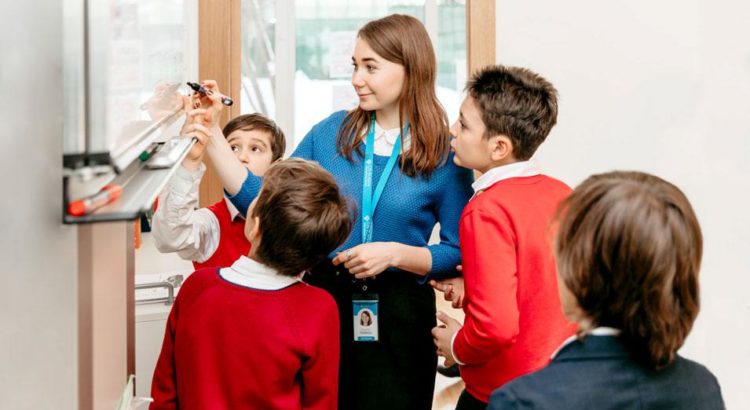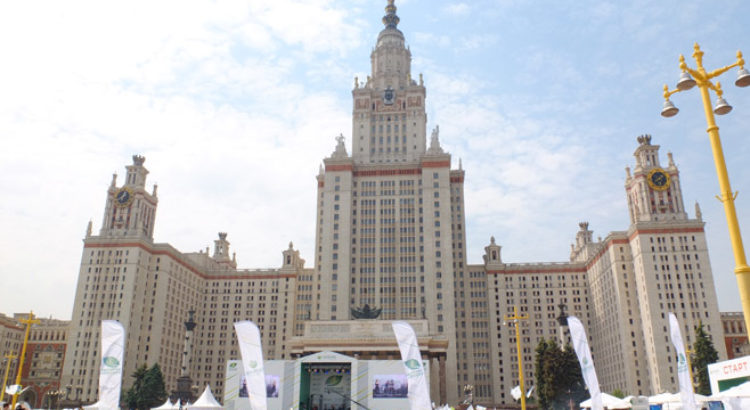Editorial
On the British Teachers Coming Work in Moscow
Russian education is going through an investment boom. Every year, new private schools are opened, many offering an education in English leading to an international diploma. And following the investment are the teachers from the English speaking world to provide that education.
Russians have traditionally been proud of their education system, yet recent declines in many worldwide competitions and ratings have spurred responses both by the Ministry of Education, but also senior business leaders. Billionaires and senior executives with investments abroad have founded or helped fund projects to develop elite schools. Similarly, the traditional alternative to a Russian state education, Moscow and St Petersburg’s international schools, are also booming with new campuses opening. All these factors lead to the situation where there is increasing demand for English native speaking teachers to come to work in Russia.
To learn more the experiences of international teachers arriving in Moscow we sat down with Alla Ponomareva, the HR Director at one of the leading international schools, Cambridge International School, who is currently recruiting new staff for the next academic year.
What motivates teachers to move abroad to teach?
There are quite a few reasons why teaching abroad can be fulfilling, exciting and rewarding. Teachers think, well, I am young and enthusiastic, full of energy and willing to explore the world or they might say, I am a professional teacher with over 15 years of experience, my children have grown-up, and now I finally have the chance to share my knowledge and culture with others.
Overall, some of the most frequent motivations for teaching abroad that I have seen include the experiences of a different culture, learning a foreign language, gaining international work experience, and making a difference in the lives of others by helping them learn in a whole new way. And, last but not least, the salaries that many international schools provide.
Who are the kinds of teachers who are most interested in working in Russia?
Usually, these teachers are open-minded professionals who value cultural differences and traditions of Russia. They are very tolerant and open to new challenges. Usually, these are the teachers who are interested in history, art, and travel. They come to Russia not only to share their experience but learn a lot for themselves.
What is teaching abroad like?
Teaching in a foreign country may be different from teaching at home, so it is important to be flexible and adaptable. Such factors as the types of jobs, hours, and ages of students, skills to be taught, and, more generally, attitudes to schooling and education can be very different to what a teacher has experienced at home. But the differences aren’t necessarily challenging, many teachers are delighted by, for example, all the flowers and attention that they receive on 1st September (first day of school).
Do you find yourself in competition with schools in other countries when recruiting?
Yes, we are definitely competing with other countries when recruiting. British teachers and those from other English speaking countries are in high demand, but as surprising as it may sound to some, Moscow and St Petersburg offer some of the most enjoyable environments and lifestyles. It is a European capital with a long historical and cultural heritage. Social attitudes can be much more familiar than in other places and we find some teachers leaving perhaps warmer climates, but radically different cultures, to move to Moscow.

What are the challenges that teachers might face when adapting to life in Russia?
I think that the biggest challenge to adaptation is changing the perception about Russia and Russians. In most cases, you will meet nice, helpful, and easy going people. The language, for sure, can be difficult, but at least in our school teachers always have a support from teachers’ assistants and other school staff who speak English. CIS Russia provides Russian lessons to International teachers as long as international teachers teach English lessons to local staff. And that’s a great tradition that gives everyone a chance to understand each other and value each other’s language and culture. Of course, winters may not be to everyone’s taste, but the beautiful snow covered cityscapes and the opportunity to learn skiing and other winter sports more than makes up for it!
How do you expect the market for international teachers to change over the next few years?
The opportunities for international teachers in Russia is only set to increase, even if the exact nationalities of new arrivals may change slightly year to year (British, Australian, Canadian, South African, etc.), as the international schools look to raise the quality standards to teachers’ qualification and professional competencies.
The politics may not always be encouraging to those considering Russia, yet it does little to abate Russians appetite for offering their children great educations and their desire to welcome international teachers to Russia. One would also hope that the cultural exchanges taking place inside school communities has long lasting positive impact.









 Users Today : 240
Users Today : 240 Total Users : 35404262
Total Users : 35404262 Views Today : 290
Views Today : 290 Total views : 3333769
Total views : 3333769